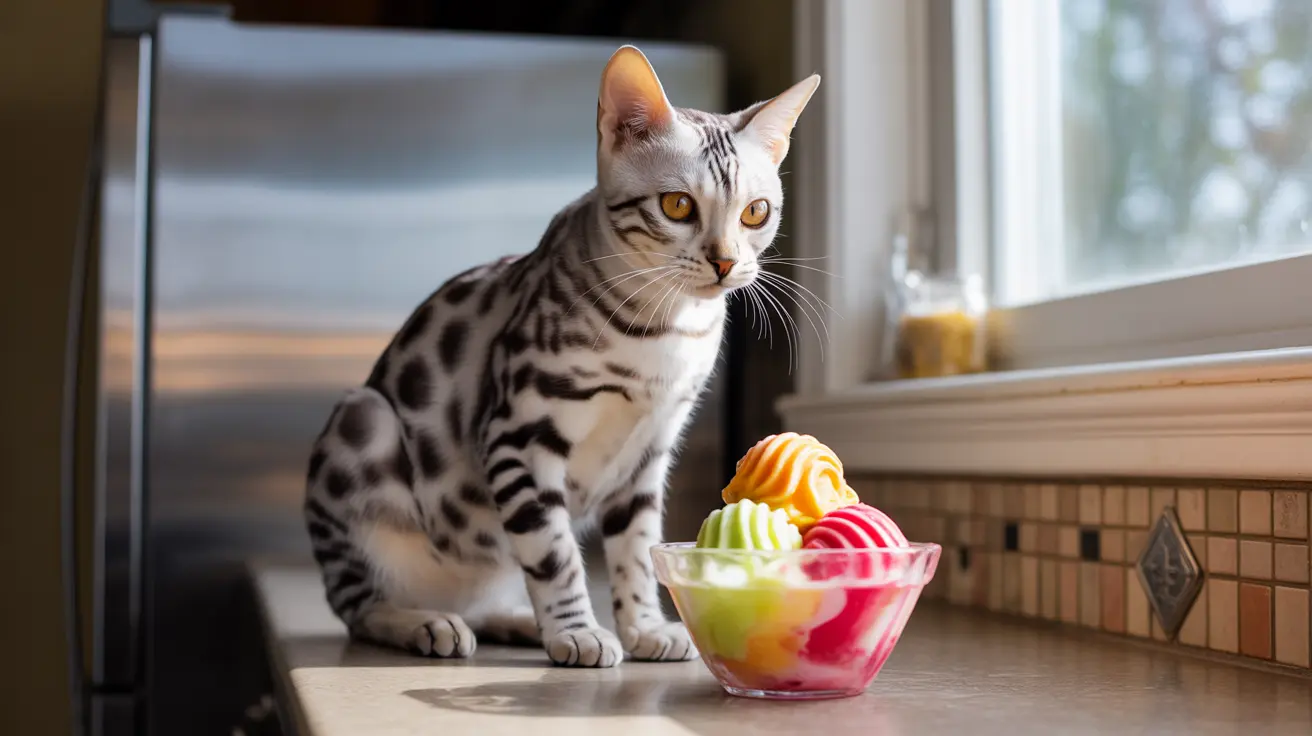Why Cats Shouldn't Eat Sherbet
Cats are obligate carnivores, meaning their bodies are designed to process meat-based proteins rather than sugary treats like sherbet. Unlike humans, cats lack the ability to taste sweetness, making sugary treats both unnecessary and potentially harmful to their health.
The Problematic Ingredients
Sherbet typically contains several ingredients that can be harmful to cats:
- Sugar and artificial sweeteners
- Dairy products
- Fruit concentrates (some potentially toxic)
- Artificial colors and flavors
- Preservatives
Health Risks of Feeding Sherbet to Cats
Feeding sherbet to your cat can lead to several health issues:
- Digestive upset and diarrhea
- Lactose intolerance reactions
- Blood sugar spikes
- Dental problems
- Potential toxicity from artificial sweeteners
- Risk of obesity and diabetes with regular consumption
Temperature-Related Concerns
The extremely cold temperature of sherbet can cause discomfort and even pain for cats, particularly those with sensitive teeth or existing dental issues. What might look cute on social media as a "brain freeze" reaction is actually a sign of physical distress.
What Happens If Your Cat Eats Sherbet?
If your cat manages to sneak a lick of sherbet, don't panic. Monitor them for signs of digestive upset or unusual behavior. However, if they've consumed a larger amount or if the sherbet contains potentially toxic ingredients like xylitol, contact your veterinarian immediately.
Safe Alternatives to Sherbet for Cats
Instead of sharing sherbet with your cat, consider these safer alternatives:
- Commercial cat treats designed for felines
- Small pieces of cooked, plain meat
- Cat-specific frozen treats available at pet stores
- Fresh, clean water (many cats enjoy running water from pet fountains)
Frequently Asked Questions
Can cats safely eat sherbet or is it harmful to them?
No, cats cannot safely eat sherbet. It contains ingredients that can cause digestive issues, and its sugar content can lead to health problems like obesity and diabetes.
What ingredients in sherbet are dangerous for cats?
The dangerous ingredients include dairy (most cats are lactose intolerant), sugar, artificial sweeteners, and potentially toxic fruit flavors like citrus. Some artificial sweeteners like xylitol can be particularly harmful.
What should I do if my cat accidentally eats sherbet?
Monitor your cat for signs of digestive upset. If they've consumed a large amount or show concerning symptoms, contact your veterinarian. Keep the product packaging for ingredient reference.
Why is dairy in sherbet problematic for most adult cats?
Most adult cats are lactose intolerant, meaning they lack the enzyme needed to properly digest dairy products. This can lead to digestive issues like vomiting and diarrhea.
Are there any safe frozen treat alternatives for cats instead of sherbet?
Yes, there are commercial frozen treats specifically made for cats. You can also offer small pieces of frozen cooked meat or special cat-safe ice treats available at pet stores.
Remember, while it's tempting to share human treats with our pets, it's best to stick to foods specifically formulated for feline health and safety. Your cat will be happier and healthier with appropriate treats designed for their unique dietary needs.






